Addition skills Normal Math Worksheets for 4-Year-Olds
7 filtered results
-
From - To
Welcome to our Addition Skills Normal Math Worksheets for 4-Year-Olds! These engaging worksheets are designed to introduce young learners to the foundational concepts of addition in a fun and interactive way. Each worksheet includes colorful illustrations and simple problems that help children develop their number recognition and counting skills. Activities encourage hands-on learning, ensuring that kids grasp Addition concepts while enhancing their problem-solving abilities. Perfect for parents and teachers, these resources support early math education and instill confidence in young minds. Download our worksheets today and watch your child embark on an exciting math adventure filled with discovery and enjoyment!


7 Continents and 7 Seas Worksheet


Adding Flower Petals Worksheet
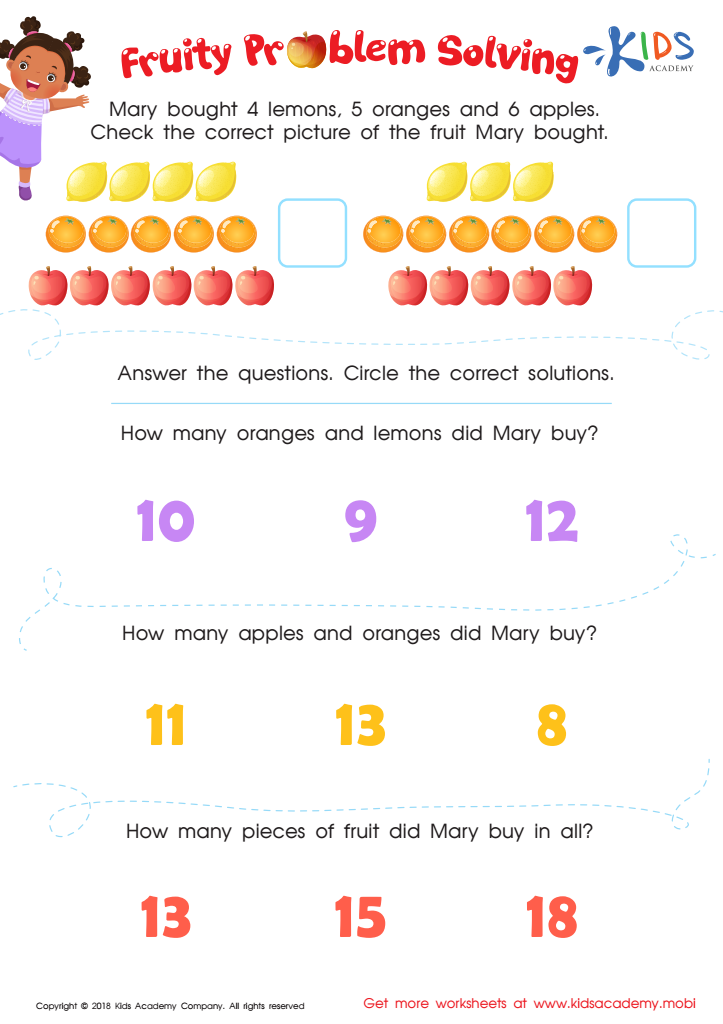

Fruity Problem Solving Worksheet
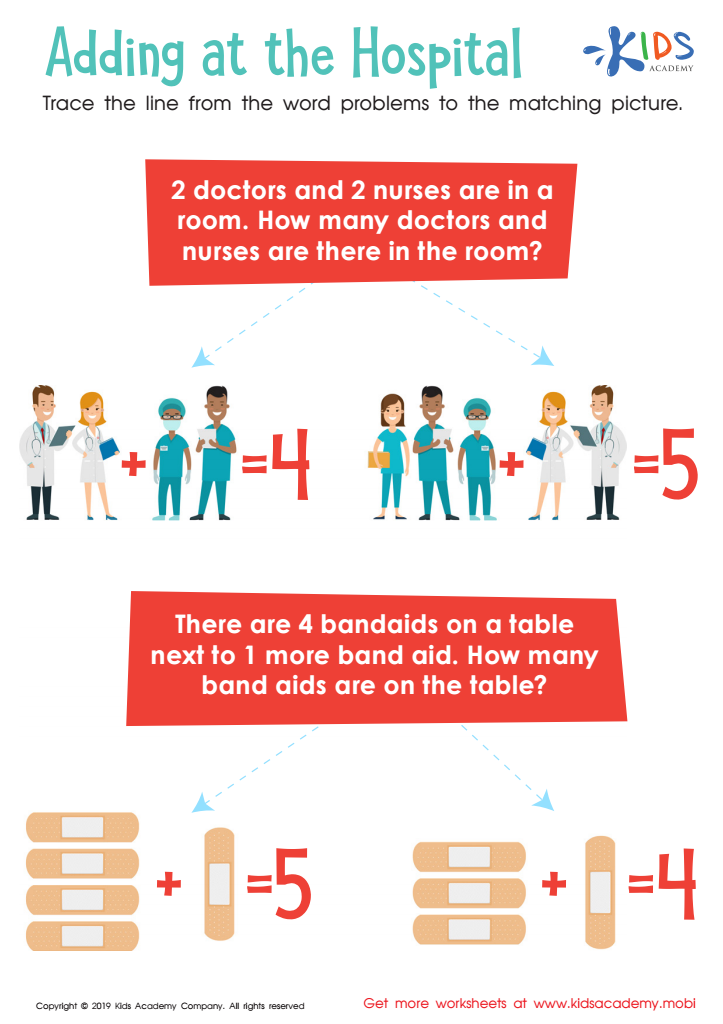

Adding at the Hospital Worksheet
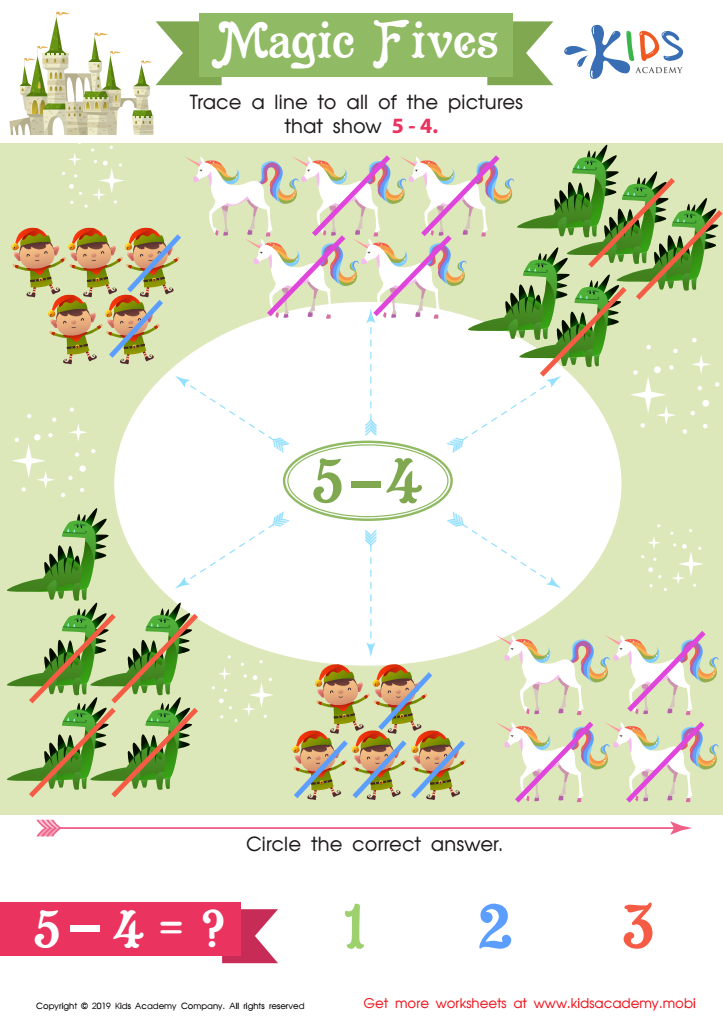

Magic Fives Worksheet
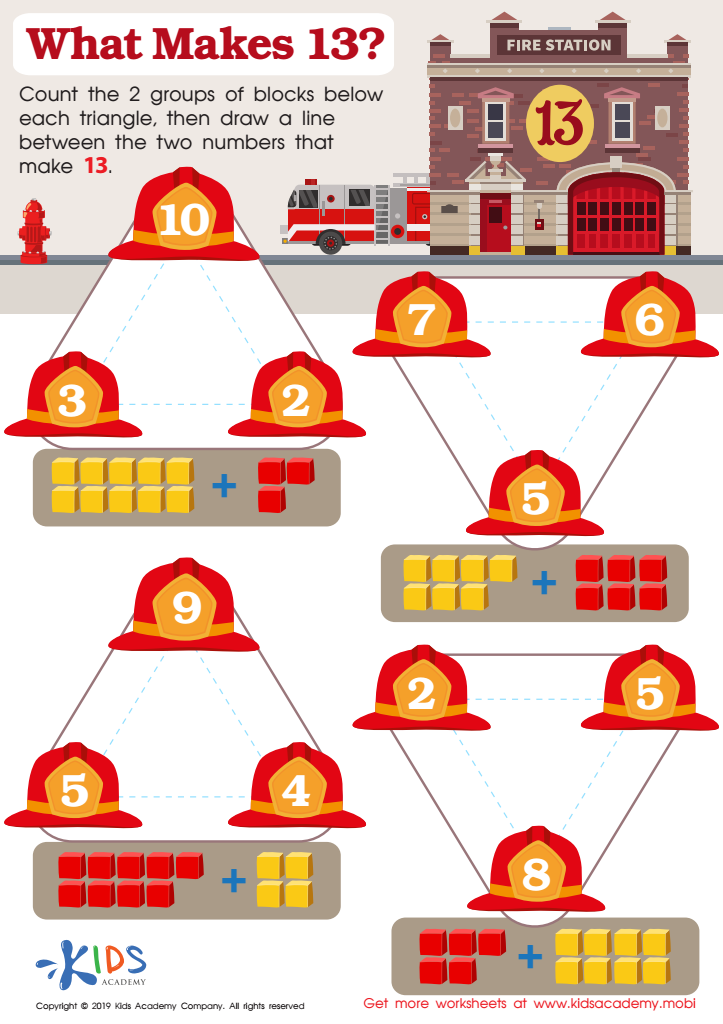

What Makes 13 Worksheet
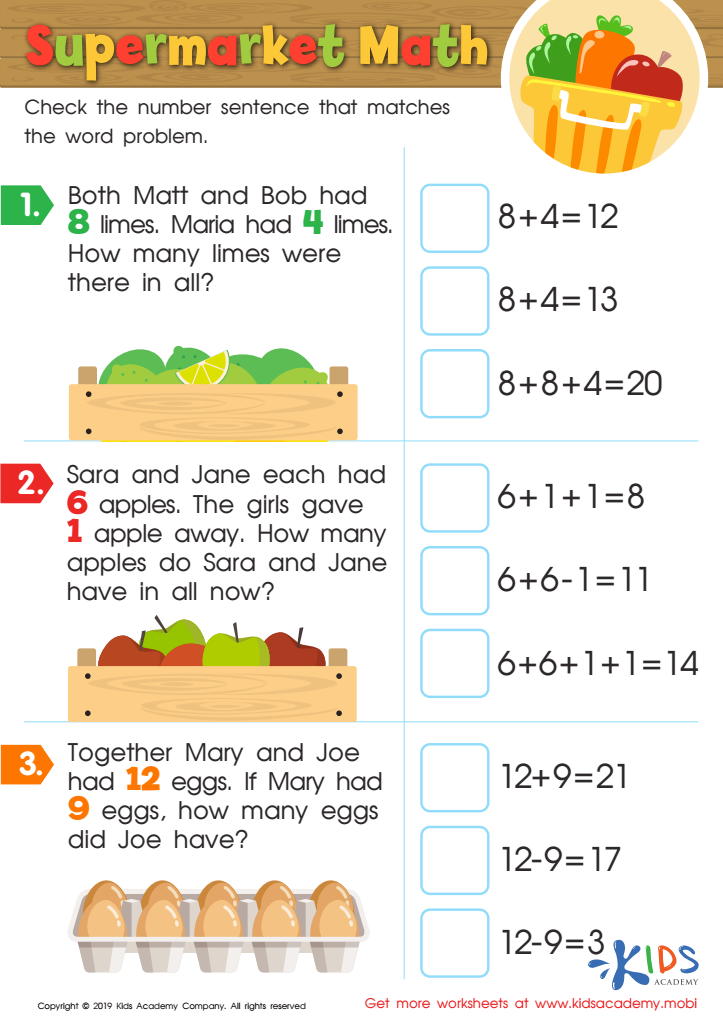

Supermarket Math Worksheet
Addition skills are foundational for a child’s overall math development and cognitive growth, making it essential for parents and teachers to prioritize them for 4-year-olds. At this age, children are highly receptive to learning through play, making it an ideal time to introduce simple mathematical concepts. Understanding addition helps children develop problem-solving skills, critical thinking abilities, and logical reasoning. It also fosters a positive attitude towards math, reducing anxiety and building confidence as they progress in their education.
Moreover, addition is a part of everyday life. Teaching these skills equips children with the ability to thrive in situations that require basic calculations, such as sharing snacks or counting toys. Incorporating addition into daily routines makes learning relevant and engaging, encouraging curiosity and exploration.
Additionally, early exposure to math enhances language skills, as children express quantities and engage in conversations about numbers. This holistic approach to learning supports cognitive and social development, preparing children for future academic success. Ultimately, the investment in developing strong addition skills in 4-year-olds lays the groundwork for future math proficiency and lifelong learning. Both parents and teachers play a vital role in fostering these essential skills during this critical period of development.
 Assign to My Students
Assign to My Students







.jpg)







